People have been living with dogs for centuries. Despite this, most people have a limited understanding of why dogs do certain things.
They often anthropomorphize dogs – a big word that means human characteristics and motivations are ascribed to dogs’ behavior.
Other people are simply puzzled why their dog behaves in a particular fashion or has, from a human point of view, odd habits.
So, in the spirit of unraveling some of these peculiar habits, we’ve provided some common canine behaviors and the true reasons for them.
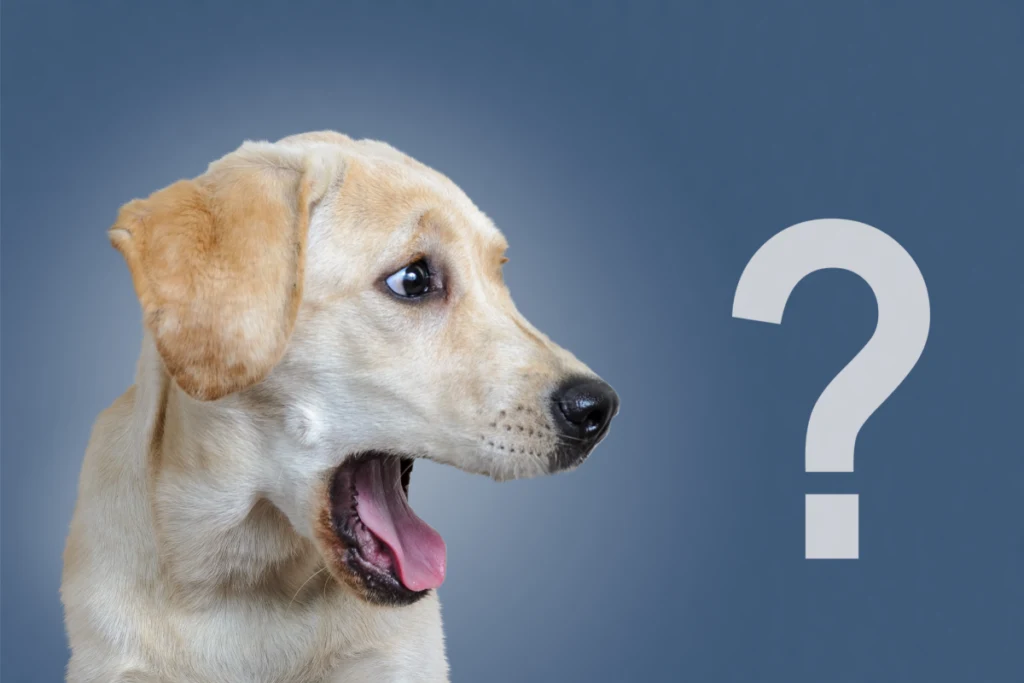
Read on the understand why your furry friends do what they do…
Click Here to Jump to a Section
1. Why Does My Dog Scoot?
Scooting is a behavior that is very common in dogs.
Scooting is when dogs drag their rear ends over the ground.
Most people find it funny if it is done outside but are not so charmed when the dog does it on their best Persian rug.
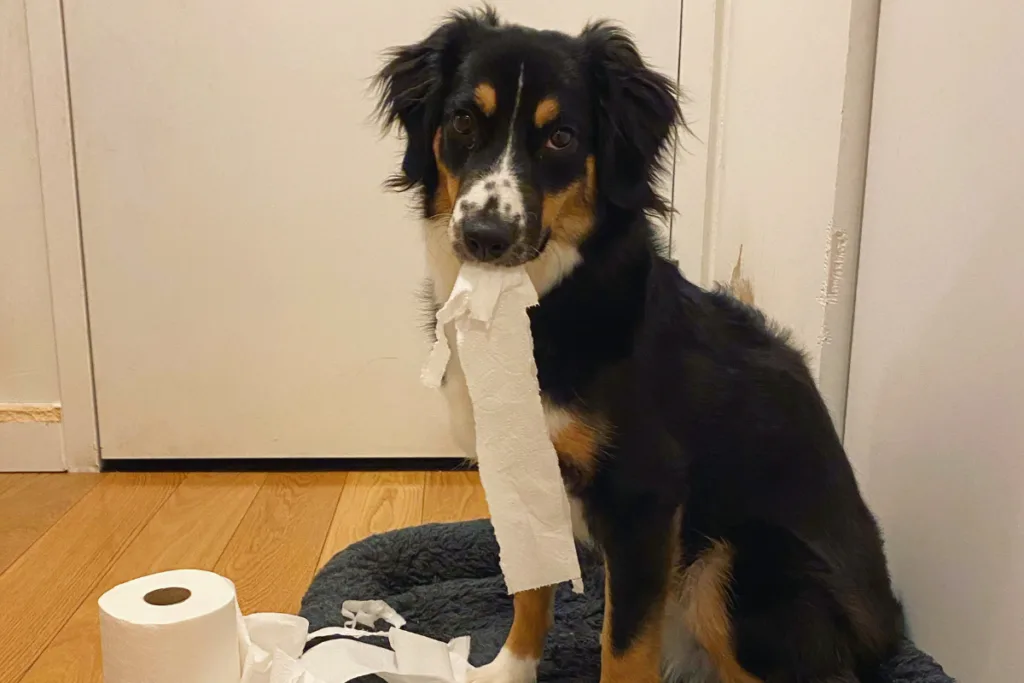
Scooting occurs for several health reasons. It is always advisable to check why your dog is scooting.
Intestinal worms are a typical reason that a dog scoots.
Tapeworms are the usual culprit as their segments break off and exit the anus with the stools.
These segments can cause intense itching, resulting in the dog scooting in an effort to relieve the itch.
Dogs have anal glands that empty into anal sacs on either side of the anus.
A foul-smelling fluid is secreted by the glands and fills the sacs.
The fluid is used for marking territory and is released when dogs are afraid.
Anal sacs can become blocked and infected.
Some dogs are more liable to develop anal sac problems and scoot to relieve the pressure they feel around the anus.
Scooting can worsen the problem as dirt and debris can be pushed up into the anus if the dog scoots on hard surfaces resulting in an anal sac abscess.
Dogs are indiscriminate, undiscerning eaters, often eating rubbish.
This undigestible matter has to pass out with the stool and may become stuck halfway.
Dogs with this difficulty scoot to get rid of the troublesome fecal matter.
If your dog scoots often, you should have them checked for worms and anal sac problems.
2. Why Does My Dog Pee On Tires?
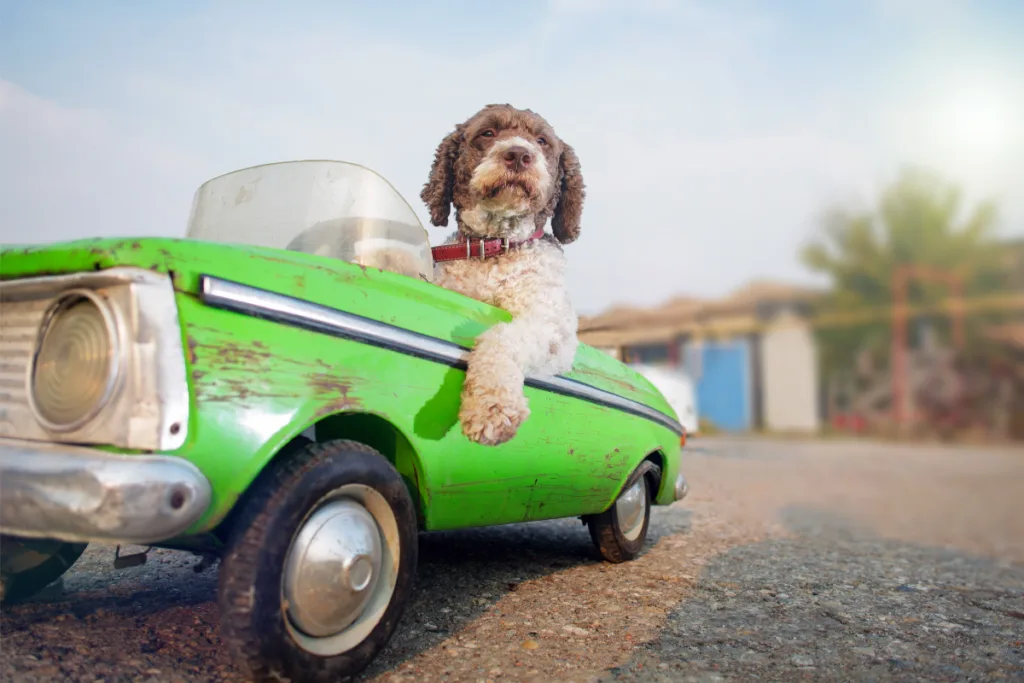
Your dog running up to your friend’s new car and peeing on the tires makes for awkward encounters.
It may seem like a weird thing for dogs to do.
Tires are made of rubber and metal, and it is hard to understand why they pose such an attraction for dogs.
Tires in themselves are not particularly interesting for dogs.
The fascination comes because our cars are driven through different areas, picking up scents from other animals, people, and rubbish.
Dogs have more than one hundred million scent receptors in the brain, compared to humans, that have only six million.
A Rottweiler’s Sense of Smell: How Good is it?
For dogs, tires are filled with wonderful scents, allowing them to experience the world through their noses.
All these new scents incite male dogs to mark their territory, and they do this by peeing on tires.
They add to the scents by stating their presence and dominance through their urine.
3. Why Does My Dog Kick Backward After Pooping?
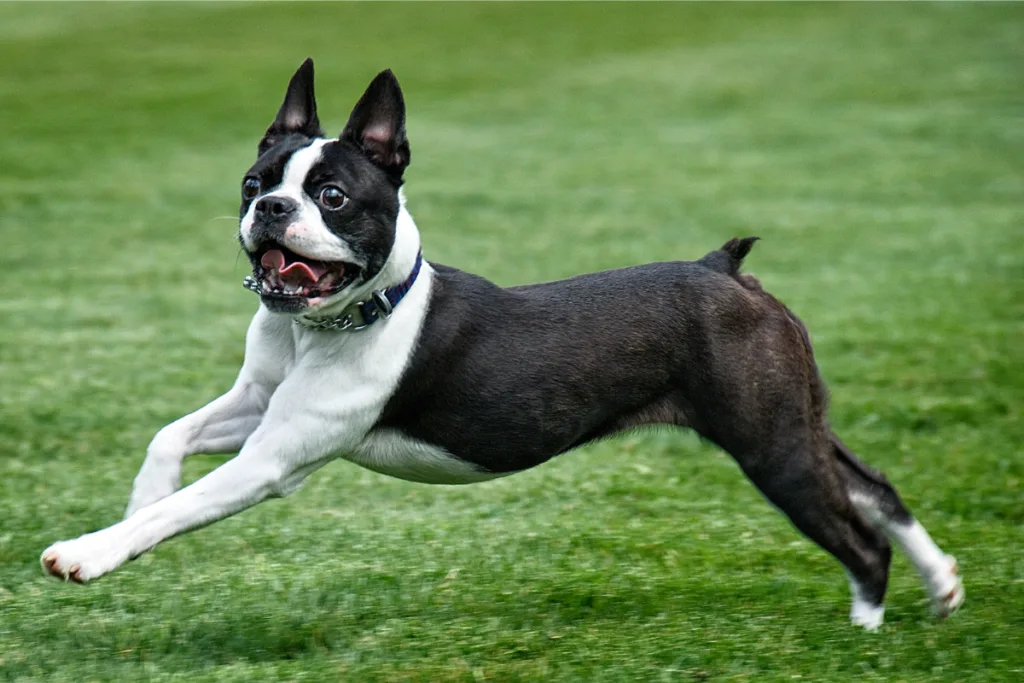
Dogs often kick backward after defecating or urinating, which seems odd behavior.
This is known as ground scratching and is not an attempt to kick sand over their feces as cats do.
It is instead a form of communication.
The American Kennel Club (AKC) explains that dogs have glands in their feet that produce pheromones.
These pheromones give social information to other dogs.
This may include gender, status, and the declaration of territory.
Dogs in dog parks may ground scratch more often as they encounter many unknown dogs of unknown social status.
Some very dominant dogs use ground scratching to intimidate other dogs.
4. Why Does My Dog Eat Grass?
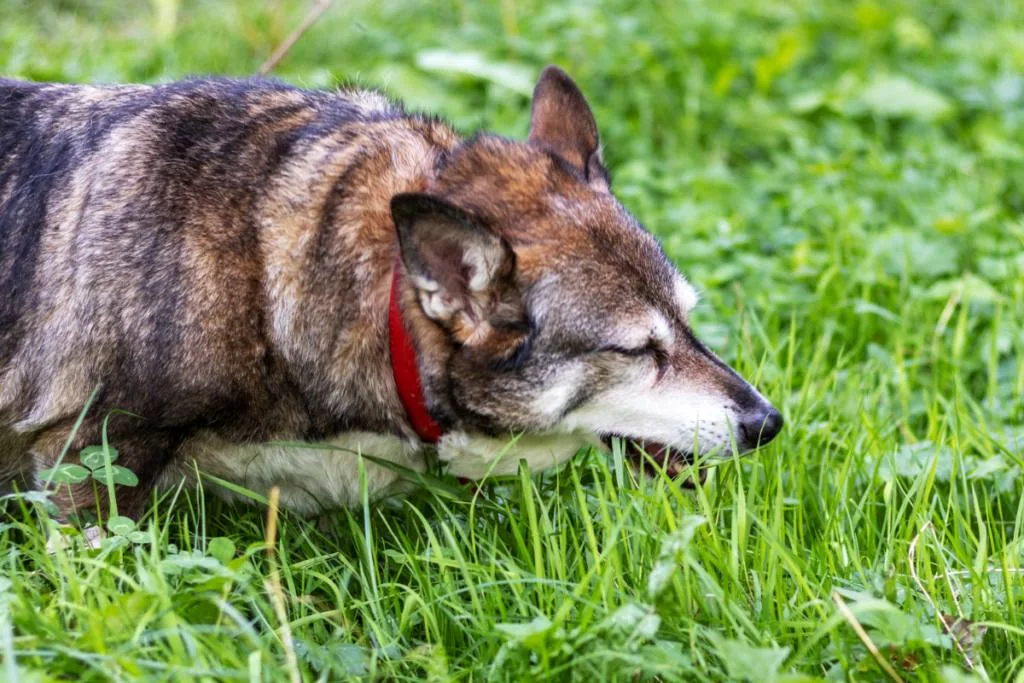
Eating grass is a very common behavior that troubles owners.
Dogs are facultative carnivores, meaning they get most of their nutrition from animal protein.
Dogs do have some need for roughage to help regulate their digestive systems.
Eating grass allows dogs to utilize the roughage to keep stools moving and enhance gastrointestinal microflora.
Why Do German Shepherds Eat Grass? 4 Reasons
Sometimes dogs graze on grass when they are feeling nauseous.
Eating large quantities of grass triggers vomiting as the dog’s digestive system is not designed to deal with that much plant material.
Why Your Rottweiler Eats Rocks and What to Do
Dogs swallow long pieces of grass without chewing it, stimulating the gag reflex and causing vomiting.
5. Why Does My Dog Fight Other Dogs?
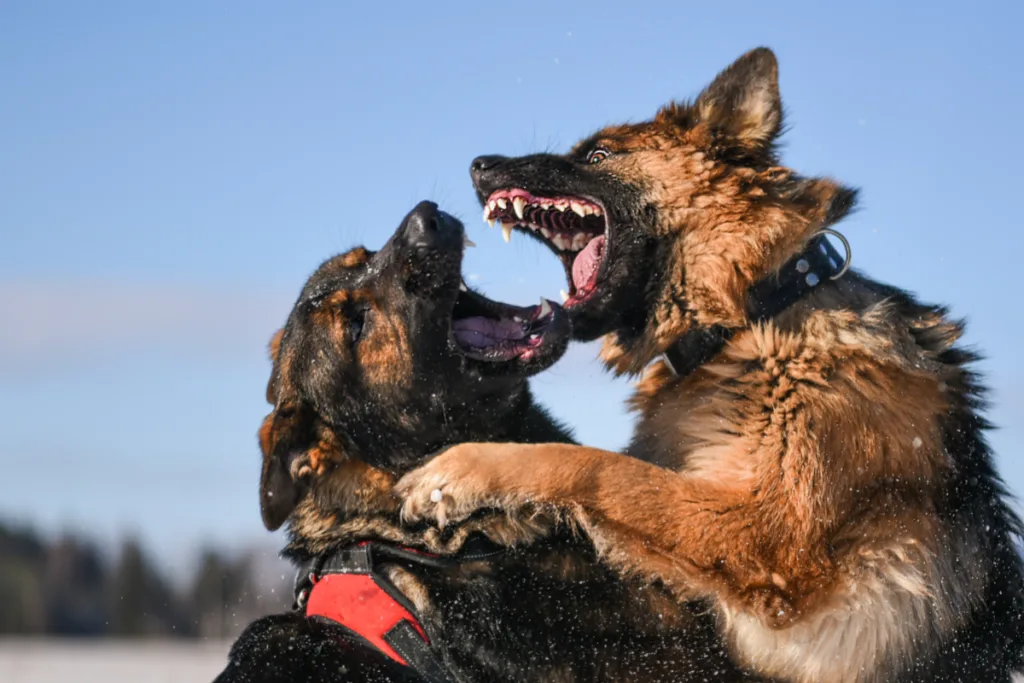
Understanding aggressive dogs is a complicated issue.
Some breeds of dogs have been bred to be dominant and aggressive as this was necessary for the function they fulfilled.
A classic example is a Rhodesian Ridgeback.
These dogs were bred to hunt lions during the early days of exploring Africa.
If the dog is brave enough to face a lion, it needs to have high levels of confidence which come with dominant, more aggressive dogs.
13 Most Dangerous & Banned Dog Breeds You Should Know
Dogs bred for guarding duties needed to be territorial and prepared to defend their home, family, and flock.
These dogs have a naturally higher level of aggression, including toward other dogs.
Some dogs have not been socialized correctly, and this leads to aggression.
These are often fear-aggressive dogs, although true aggression may also be seen.
Fear aggression is quite common in small breeds that have to contend with a giant world.
Early socialization and exposure to other dogs are key to preventing dogs from becoming intolerant of other dogs.
6. Why Does My Dog Follow Me?
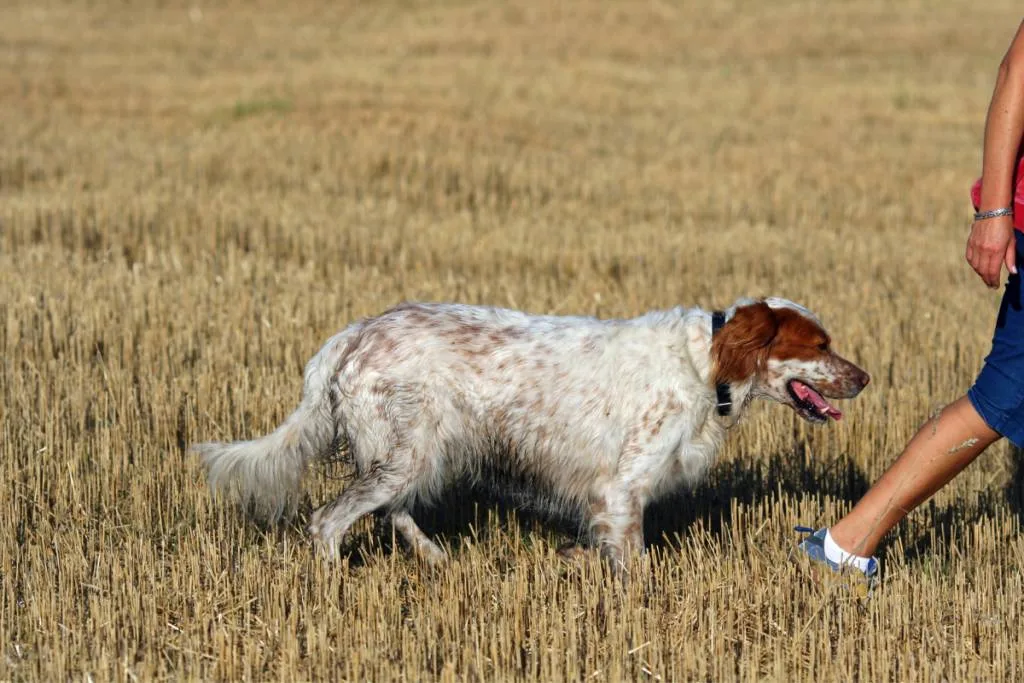
Your dog may follow wherever you go, and some people find this irritating.
Dogs bond closely with their owners, and certain breeds are apt to form closer bonds than others.
The dog regards you as the source of food, protection, entertainment, and fun.
It is generally an indication that your dog loves you.
Research has shown that when dogs look at their owners, they experience a release of the oxytocin hormone.
What Are The Best Dog Breeds For First-Time Owners?
Oxytocin is colloquially called the love hormone and is released when people fall in love or when parents cuddle and feed their babies.
Dogs experience intense emotion from oxytocin release, further strengthening their bond with their owner.
Some dogs may be apprehensive or fearful and follow their owners around because they are afraid of being separated.
It is essential not to punish your dog for following you.
The UK Kennel Club advises using distraction methods if you want to stop your dog from following you.
7. Why Does My Dog Sniff Other Dogs’ Butts?
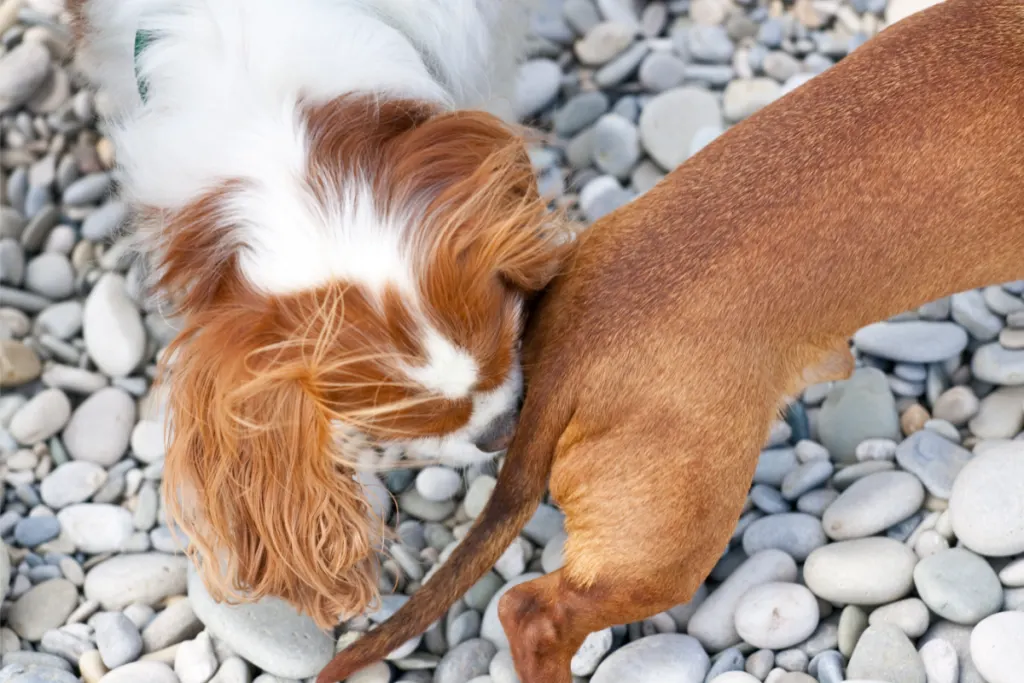
As strange as it may appear to humans, butt sniffing is a polite dog greeting.
It also provides information on the other dog’s gender, status, health, diet, and mood.
Both male and female dogs sniff a new dog’s butt, which is a non-confrontational way of getting to know each other. A dog that approaches a strange dog’s head is behaving aggressively.
8. Why Does My Dog Bark When Left At Home?
Your dog may behave perfectly when you are home, but the neighbors complain that your dog barks when you are out.
This behavior usually stems from two reasons.
Separation anxiety is the first and most common cause of barking while the owner is out.
The dog becomes anxious and afraid when the owner is not there to comfort, protect and keep them company.
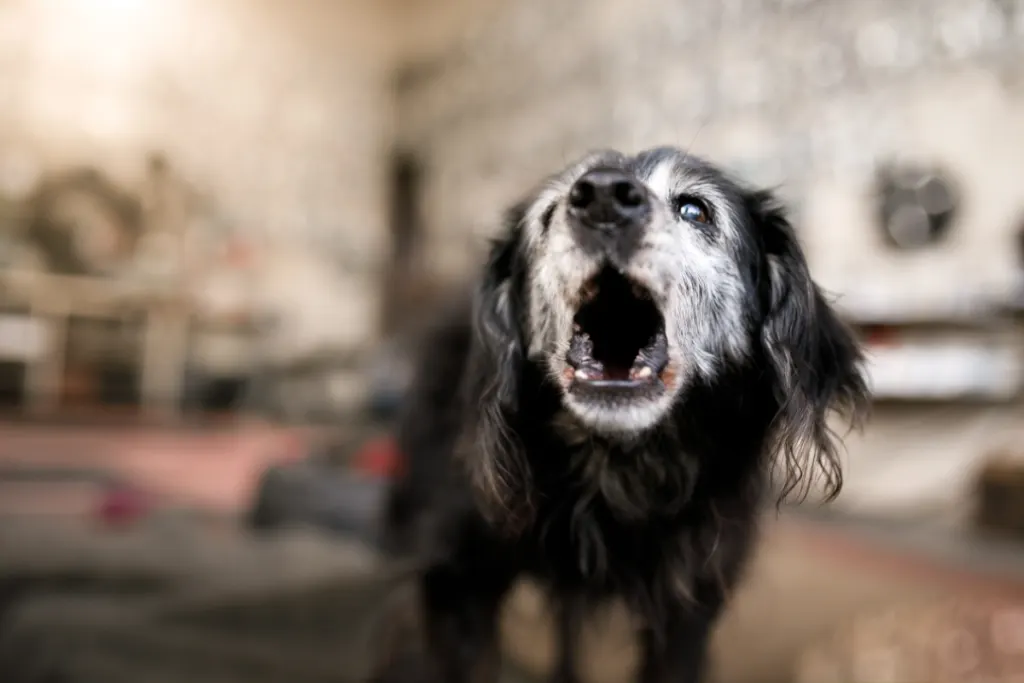
How to Deal with German Shepherd Separation Anxiety
Separation anxiety can be difficult to deal with and requires providing a safe den for the dog and distraction toys.
10 Dog Breeds With the Least & Worst Separation Anxiety
Some dogs bark when there is no one home because they are bored.
They need to have stimulating toys left for them, and some of them benefit from having a dog companion.
Can Labradors Be Left Alone All Day? How Long Is Too Long?
9. Why Does My Dog Eat Poop?
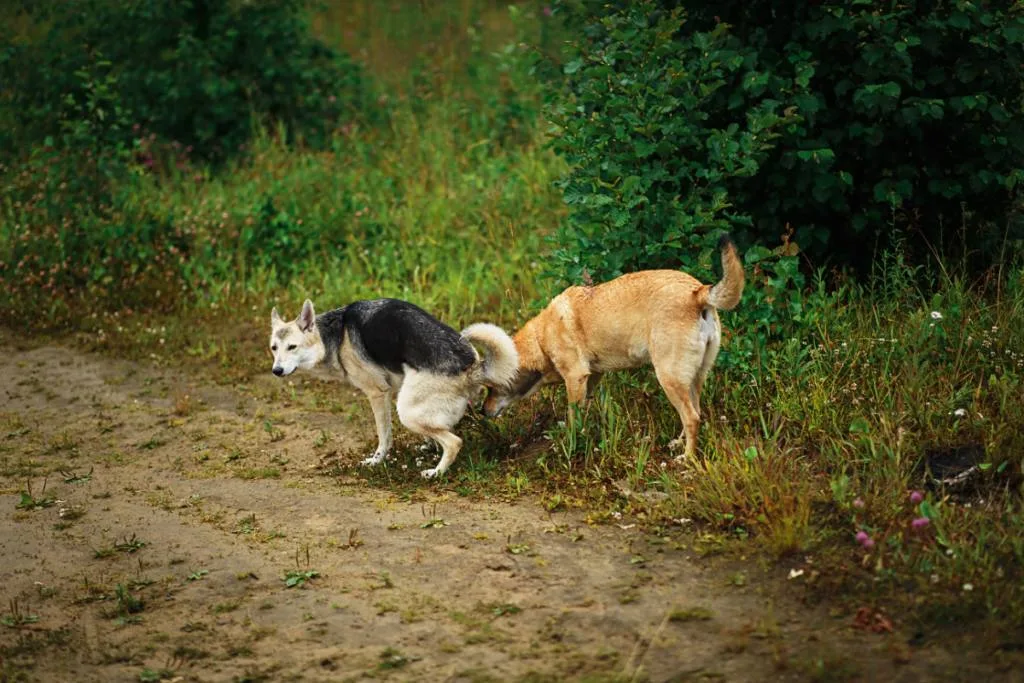
Eating poop is known as coprophagia, and most owners are appalled by the habit. Dogs may choose to eat their own feces, other dogs’ feces, or the stools of other species.
Cat poop is a favorite with almost all dogs.
Why Do German Shepherds Eat Poop? All You Need to Know
Dogs often eat poop if they have digestive issues.
It is often seen in dogs with inflammatory bowel disease or food intolerances.
Dogs may instinctively be trying to improve their gastrointestinal bacteria. Wild canines routinely eat the stomach contents of prey, giving their intestinal flora a boost.
Coprophagia may also stem from nutritional deficiencies, but it can be tricky to discover which mineral or vitamin is lacking. Supplementing the dog’s nutrients may help.
The 5 Best Supplements For Rottweiler Puppies
In some dogs, coprophagia is a bad habit and difficult to stop. Stress, anxiety, and boredom are triggers for coprophagia.
10. Why Does My Dog Chase Cats?
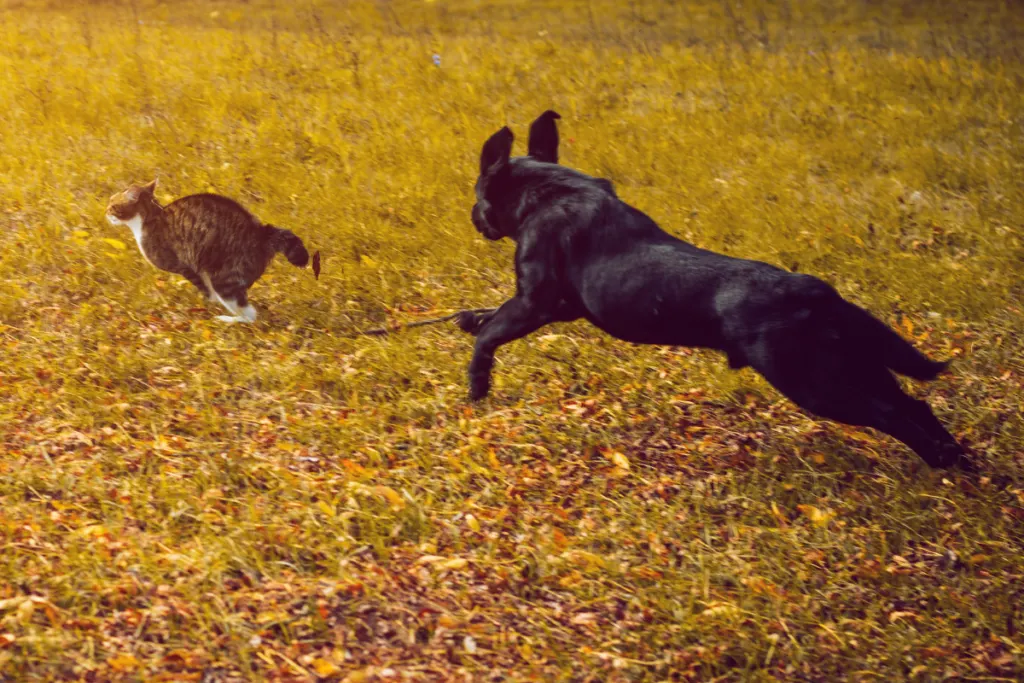
There is a common misconception that dogs and cats hate each other and always will.
The problem arises because dogs are predators.
This may be hard to imagine when looking at a tiny chihuahua, but this little mite still retains hunting instincts.
Dogs are pre-programmed to chase small animals.
Unfortunately, cats are tiny animals that often run when chased by dogs.
This triggers the dog’s hunting instinct even more.
Do German Shepherds Get Along With Cats?
Chasing the cat releases hormones in the dog’s brain, and the dog enjoys the experience.
The following time the dog sees a cat, it will be more likely to chase the cat.
Dogs and cats can live peacefully together if they are socialized with each other.
The AKC advises training your dog if you want to introduce cats to adult dogs.
11. Why Does My Dog Howl?
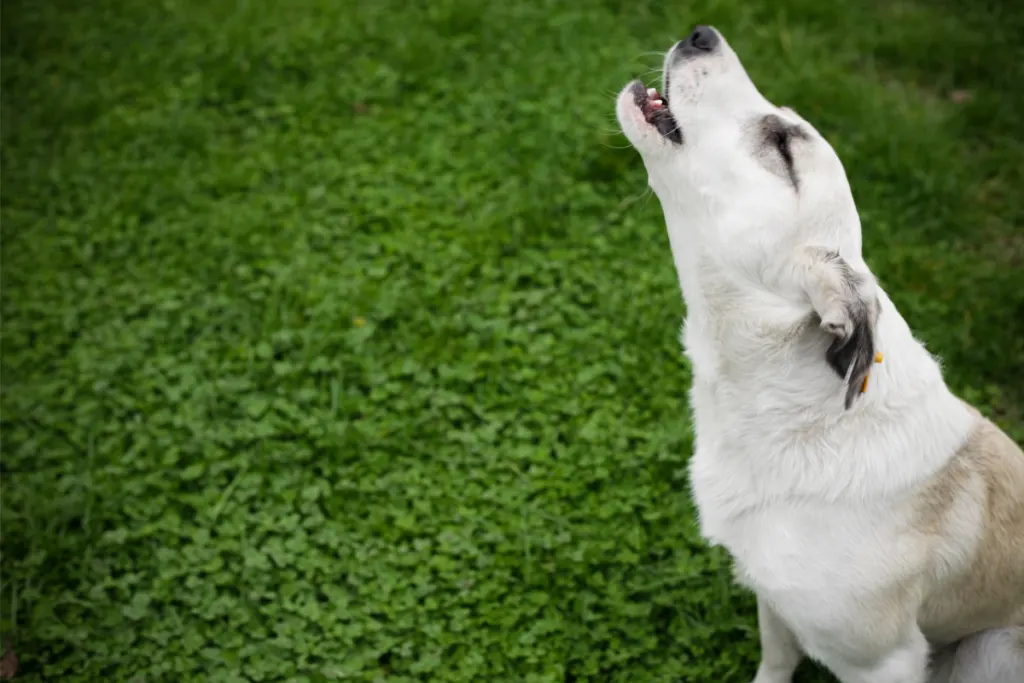
Howling dogs can be deafening and may be a sign of a problem.
Dogs howl as a means of vocalizing.
Their intent behind howling varies quite extensively.
Some dogs howl when their owners leave home as they have separation anxiety.
This needs to be addressed, and you may need a professional behaviorist to help solve your dog’s problems.
Why Do German Shepherds Howl? Understand What It Means
Dogs may also howl when they are sick or trapped somewhere.
If you hear your dog howling outside, it is best to check your dog.
They may be injured or have found themselves locked outside the gate or stuck in a shed.
Dogs also howl in response to other dogs barking or, if you are in a rural area, to the sounds of wildlife.
People who run packs of dogs report that the dogs are more prone to howling as a group.
12. Why Does My Dog Hump Everything?
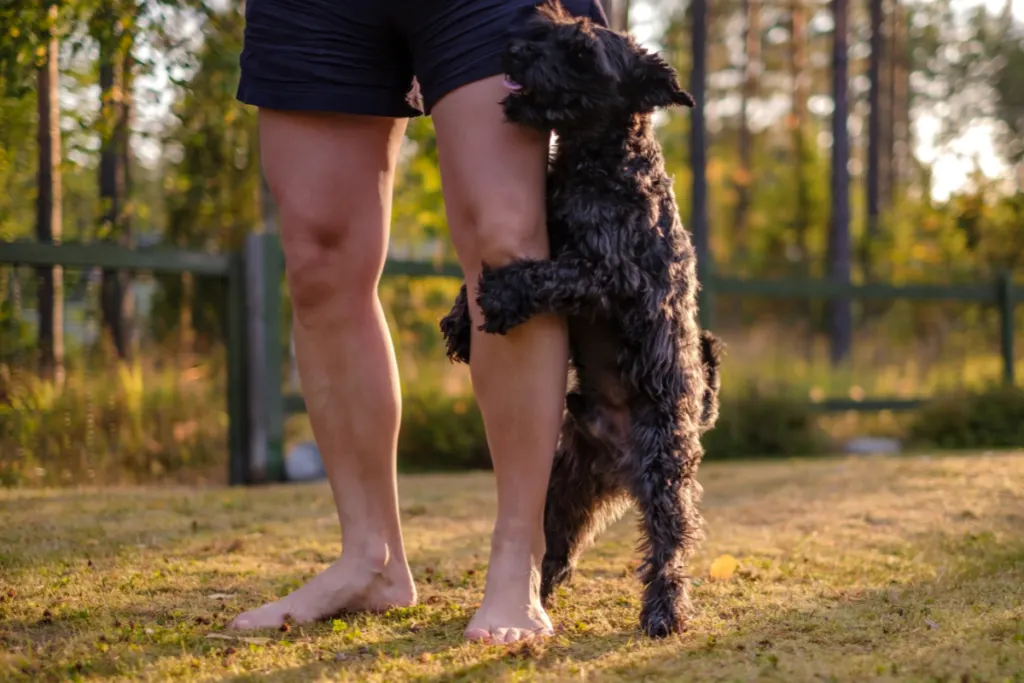
Despite our love of dogs, there are times when their behavior is embarrassing and socially awkward.
Few things are more humiliating than your dog humping everything, including visitors.
Dogs may hump each other, inanimate objects such as pillows or even people.
Humping is not usually a sexually driven behavior.
It may be seen in dominant dogs trying to maintain their social status. It may also be a response when a dog becomes overexcited.
Rowdy playing can turn to humping just because the dog gets too excited.
Dogs also work out dominance issues during play, and humping is part of this.
It is a non-confrontational way of establishing a hierarchy.
At times humping may also be seen in a stressed dog trying to self-soothe.
The anxiety can usually be detected in the dog’s demeanor.
The underlying stress should be addressed and not the humping.
13. Why Does My Dog Roll Over And Pee?
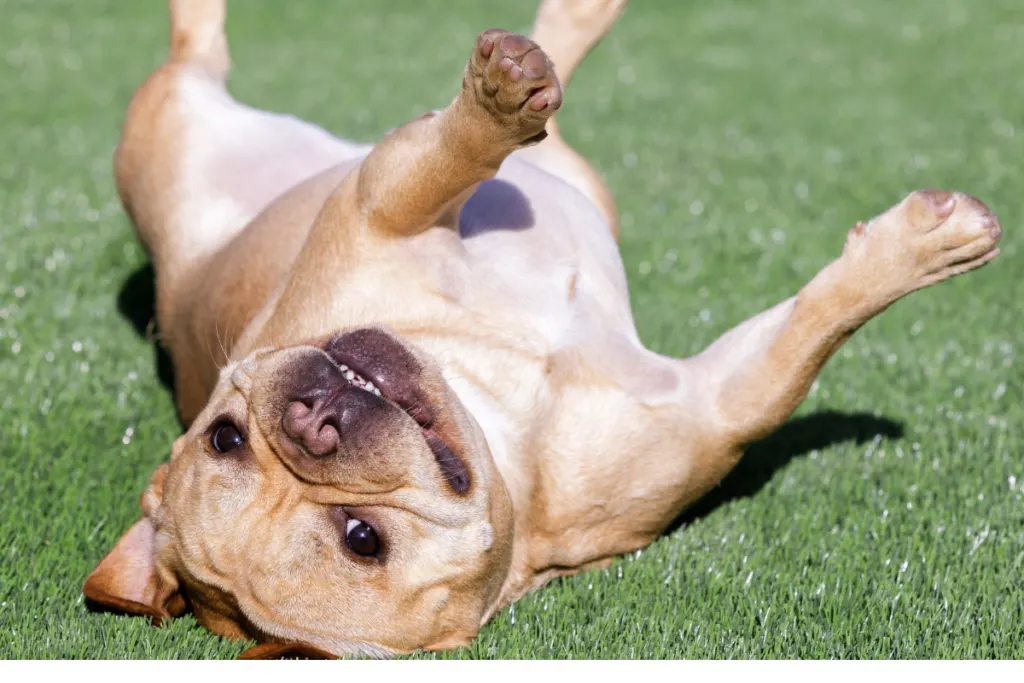
People are often confused about why their dogs roll over and pee or sometimes just urinate when their owners arrive home or new people visit.
This is submissive behavior and is seen in anxious, insecure dogs.
Doing basic obedience training and using calming supplements can help correct this problem.
For more on canine body language, be sure to check out the article below. It clearly illustrates behaviors that you have no doubt seen in many other dogs – likely even your own!
How to Read a Dog’s Body Language
14. Why Does My Dog Not Cock His Leg?
Owners may be confused if their male dog never cocks his leg and, similarly, why some female dogs cock their legs when they urinate.
Dogs sterilized very early may never develop mature behavior, such as cocking their legs.
The male hormones that trigger this behavior were removed before the dog learned it.
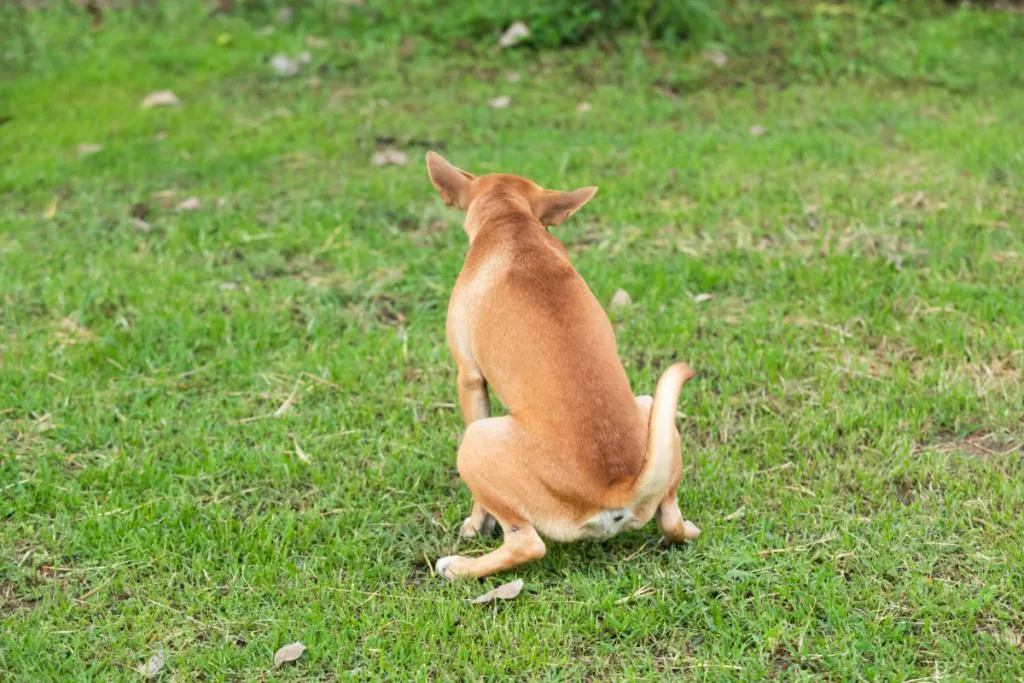
Submissive dogs or ones that are not interested in social status may not cock their legs.
Dominant female dogs may cock their legs to mark their territory.
Researchers have found that the intrauterine environment may influence later behavior.
Female puppies in a predominantly male litter are exposed to more male hormones and are more likely to show male-type behavior in later life.
The opposite is also true.
Final Thoughts
Our dogs are funny creatures. They provide us with endless entertainment and companionship, but they sure do act funny sometimes!
It’s our hope that you now have a little more insight into why your furry friends do as they do!
